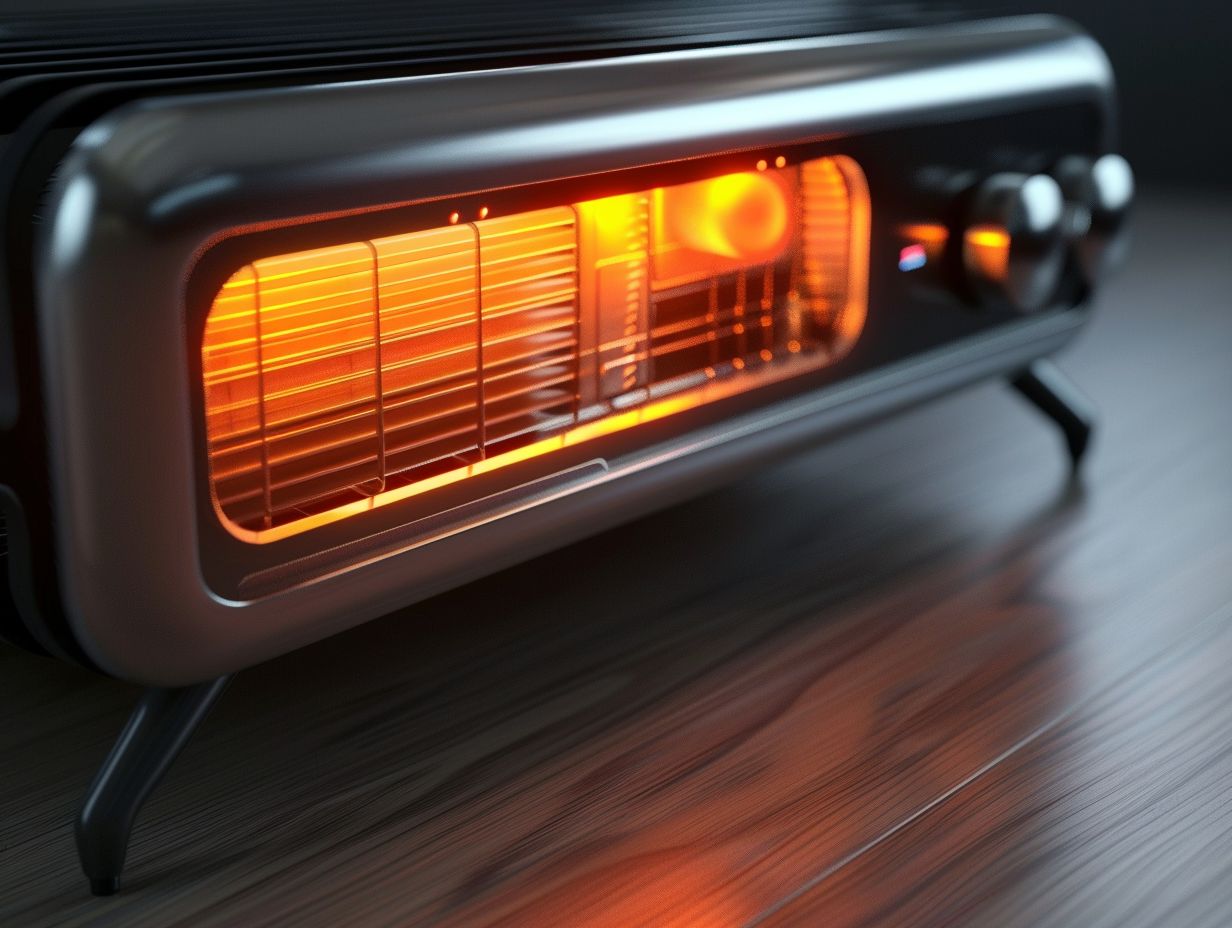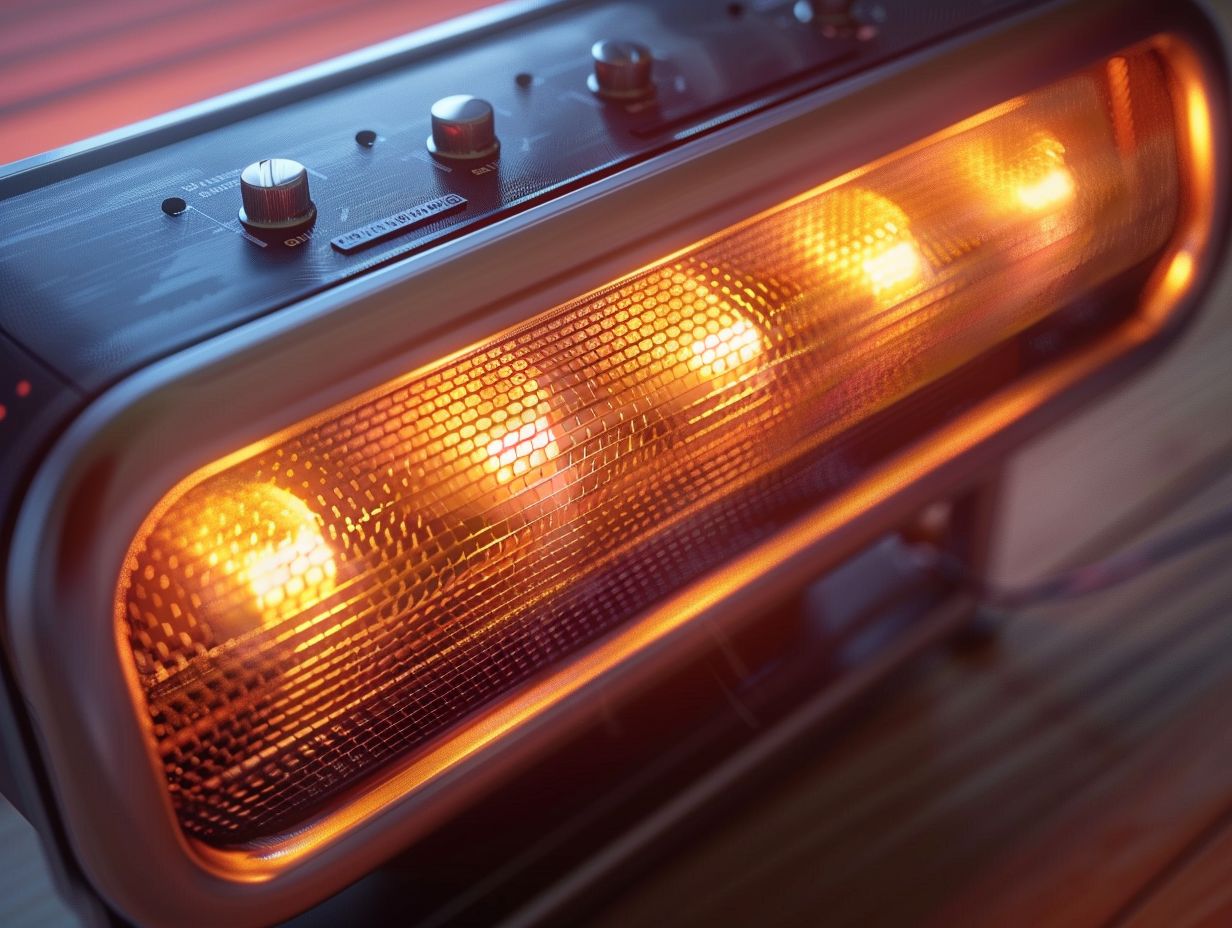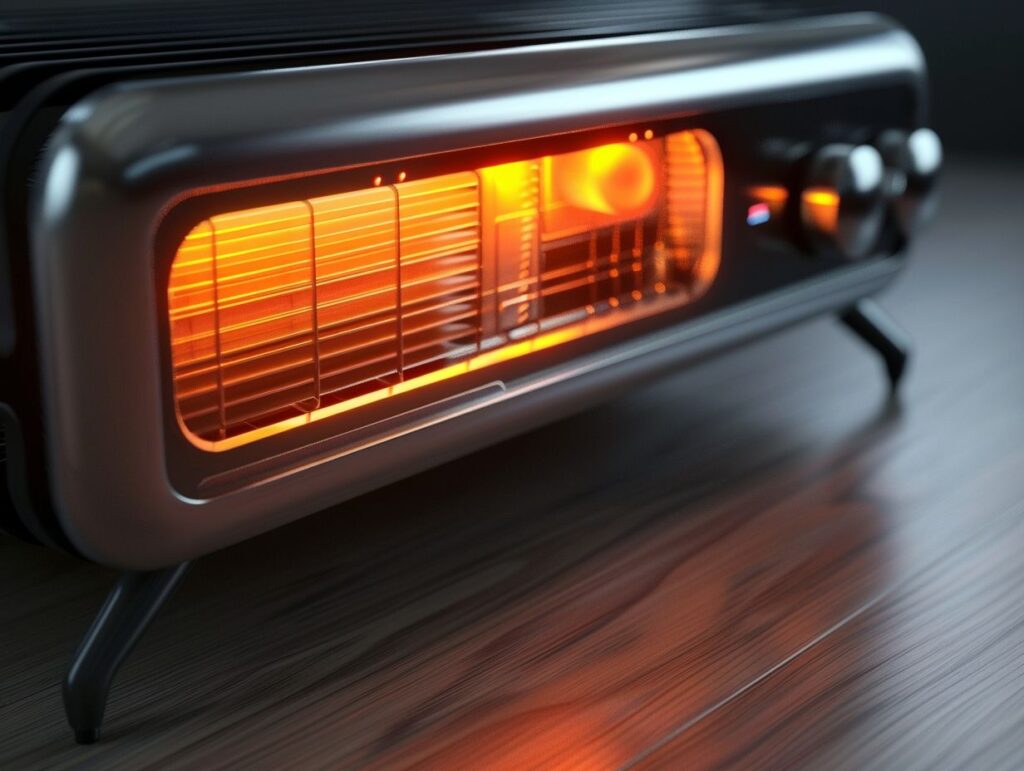Electric heaters are a popular choice for heating homes and offices, but are they truly cost-effective? In this article, you will delve into the different types of electric heaters available and how they work. Factors that affect their cost-effectiveness, such as the initial purchase price, energy efficiency, and the cost of electricity, will be explored.
The comparison of electric heaters to other heating options like gas and oil heaters will be discussed, including their respective pros and cons. Tips on maximising the cost-effectiveness of electric heaters through proper usage and maintenance, as well as additional cost-saving measures, will be provided. So, are electric heaters really worth the investment? Let’s find out.
Key Takeaways:

- Electric heaters come in various types and work by converting electricity into heat.
- The cost-effectiveness of electric heaters is affected by factors such as initial purchase cost, energy efficiency, and the cost of electricity.
- Compared to other heating options, electric heaters have both pros and cons and may be more cost-effective than gas and oil heaters.
Factors Affecting Cost-Effectiveness
When you are assessing the cost-effectiveness of electric heaters, several key factors come into play, such as initial purchase costs, energy efficiency, and thermostat control.
When evaluating the initial purchase costs of electric heaters, it is essential to recognise that various heater types are associated with different price points.
For instance, infrared heaters typically have a higher upfront cost but may deliver greater energy efficiency over time. Conversely, ceramic heaters are often more budget-friendly at the point of purchase, but they may have higher electricity consumption.
Energy efficiency ratings are pivotal in determining the overall operational costs of a heater. Improved energy efficiency leads to reduced electricity expenses. Additionally, setting the thermostat at an optimal temperature level can have a significant impact on operational costs by ensuring the heater operates efficiently and does not unnecessarily consume excess energy.
Initial Cost of Purchase

The cost of purchasing an electric heater can differ based on the brand, features, and size you choose. Brands such as Dyson, Argos, and Currys present a variety of electric heaters at different price points, catering to a range of budgets.
Dyson’s premium models, known for their advanced technology and stylish design, typically fall on the higher end of the pricing scale. On the other hand, Argos and Currys offer a selection spanning from budget-friendly basic models to more sophisticated heaters with added features.
By conducting a thorough comparison of costs and features, you can make an informed decision that aligns with your heating requirements and financial limitations.
Energy Efficiency
Energy efficiency is a crucial factor in determining the long-term running costs of electric heaters. When comparing electric heaters from brands like Zanussi and Daewoo, it is important to consider their energy efficiency ratings.
Higher efficiency models often have lower running costs because they require less electricity to generate the same amount of heat.
For example, a heater with a higher energy efficiency rating can effectively heat a room while consuming less power, leading to savings on your electricity bill. Investing in an efficient electric heater not only helps the environment by reducing energy consumption but also benefits your wallet in the long run.
Cost of Electricity
The cost of electricity has a direct impact on the overall operational costs associated with using electric heaters in a room. Therefore, it is crucial for you to optimise the usage of electric heaters in order to save on electricity expenses while still maintaining comfort.
One effective tip is to set the heater to the lowest comfortable temperature and avoid unnecessarily overheating rooms. Another strategy is to seal any drafts or gaps in the room to help retain heat, which can reduce the need for the heater to run constantly.
Additionally, using a timer to heat the room only when necessary – such as before waking up or returning home in the evening – can result in significant cost savings.
Comparing Electric Heaters to Other Heating Options
When comparing electric heaters to traditional heating options like gas and oil systems, you can assess cost-effectiveness and efficiency.
Electric heaters typically have lower initial costs compared to gas and oil systems, making them a financially viable choice for many households. They are also more energy-efficient since they convert a higher percentage of electricity into heat, minimising energy wastage.
However, it’s important to note that electric heating may be more expensive to operate in the long run due to higher electricity prices. While gas and oil systems may have higher upfront costs, they often have lower operational costs over an extended period.
Additionally, gas and oil systems can emit carbon emissions during operation, which raises environmental concerns. In contrast, electric heaters are generally considered cleaner options in terms of their environmental impact.
Pros and Cons of Electric Heaters
Electric heaters offer quick room heating and cost-effective solutions but may have limitations in heating larger areas.
One of the primary benefits of electric heaters is their ability to generate immediate warmth, making them perfect for quickly heating up smaller spaces like bedrooms or offices. These heaters often come with customisable features such as temperature controls and programmable timers, allowing users to tailor their heating experience to their specific comfort preferences.
It’s important to note that electric heaters may struggle to effectively heat larger areas or open-plan spaces due to their limited heating range. In some cases, using electric heaters for extended periods could lead to higher energy costs, so it’s essential to weigh the pros and cons before relying solely on this heating option.
Cost Comparison with Gas and Oil Heaters

When you compare costs, electric heaters generally come with lower upfront expenses than gas and oil heaters, making them a cost-effective choice for many consumers. Additionally, electric heaters require minimal maintenance and have a longer lifespan compared to gas or oil systems.
Whilst gas and oil heaters may have lower operational costs in certain regions with high electricity prices, the overall long-term efficiency of electric heaters tends to surpass these initial savings.
When you take into account the total cost of ownership, considering factors like installation, maintenance, and energy efficiency over the years, electric heaters can demonstrate to be a more cost-effective and sustainable option for heating your home.
Tips for Maximising Cost-Effectiveness
To maximise the cost-effectiveness of your electric heaters, proper usage and maintenance are essential. Setting a specific temperature range between 18-21 degrees Celsius can help you achieve a comfortable warmth while ensuring efficiency.
It is also crucial to close off unneeded spaces to contain the warmth and reduce energy wastage. Regularly cleaning and inspecting your heater’s filters and vents can help maintain optimal performance.
Installing insulation in your home can further enhance heating efficiency by retaining warmth within the living areas. Additionally, consider using air purifiers to improve indoor air quality, reducing the need for excessive heating.
By following these simple steps, you can achieve significant savings on your energy bills while keeping your space cosy.
Proper Usage and Maintenance
Regular maintenance and correct usage practices can extend the lifespan of your electric heaters and ensure optimal performance. Regarding the recommended heating hours for electric heaters, it is advisable to use them only when needed to avoid unnecessary energy consumption.
Your cleaning routines should include dusting the exterior regularly and checking for any debris inside the unit. Safety precautions such as keeping flammable materials away from the heater and never leaving it unattended are essential.
Professional maintenance by certified technicians should be scheduled periodically to address any internal issues and ensure long-term efficiency.
Additional Cost-Saving Measures
To further decrease the total heating costs, you can implement additional cost-saving measures such as utilising electric blankets or optimising thermostat settings.
Moreover, integrating timers on heating devices such as radiators or space heaters can assist in managing usage according to specific times of the day, reducing unnecessary heating during inactive periods.
Another effective tactic is to install programmable thermostats, enabling accurate temperature regulation and the capability to automatically modify settings to conserve energy when rooms are unoccupied. These energy-efficient practices not only enhance the comfort of the indoor environment but also play a significant role in lowering the overall heating expenses.
Frequently Asked Questions
Is it cheaper to use an electric heater instead of gas?

It depends on your specific situation. Electric heaters tend to be less expensive upfront, but gas heaters can be cheaper to operate in the long run.
Can using an electric heater save me money on my energy bill?
Yes, electric heaters can save you money on your energy bill if you use them efficiently. Make sure to only heat the rooms you are using and to turn off the heater when you leave the room.
Are electric heaters more cost-effective than other types of heaters?
Electric heaters can be more cost-effective than other types of heaters, such as propane or kerosene heaters. They are typically cheaper to purchase and may have lower operating costs.
What is the average cost of operating an electric heater?
The average cost of operating an electric heater depends on the wattage of the heater and the cost of electricity in your area. On average, it can cost anywhere from £0.10 to £0.30 per hour to run an electric heater.
Is it more cost-effective to use a space heater or a central heating system?
This also depends on your specific situation. If you only need to heat one or two rooms, a space heater may be more cost-effective. However, if you need to heat your entire home, a central heating system may be a better option.
Are there any energy-efficient electric heaters available?
Yes, there are many energy-efficient electric heaters available on the market. Look for heaters with an Energy Star rating, which means they meet certain energy efficiency standards set by the government.

